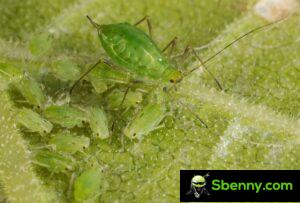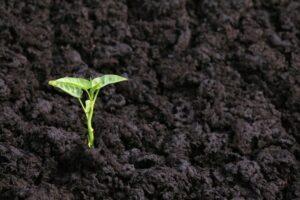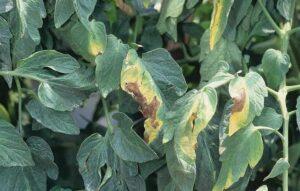The rock dust they are used more and more in organic farming. These are special flours, processed in a very fine way, which protect the vegetable plants and fruit trees from parasites and fungal diseases. They are not polluting, being a completely natural material. And there are no toxicity phenomena on crops, as the mechanism of action is mechanical. There are different types of rock powders, which essentially differ from the nature of the sedimentary rock from which they are extracted.
The rock flours for agricultural use are: kaolin, zeolite and bentonite. In recent years they have been successfully used by farmers, particularly in olive growing and organic viticulture.
In this article we illustrate what are the distinctive features of the best rock powders on the market.
The use of rock powders in organic farming

Olive trees covered with rock dust
According to the regulations set out in annex 2 of Ministerial Decree of 18/07/2018 n. 6793rock powders fall within the products allowed in organic farming. They are regarded as a invigorating, that is an enhancer of the natural defenses of plants. Specifically, these stone powders are a “product obtained as it is from the mechanical grinding of various types of rocks, whose original composition must be specified”. So let’s see what are the specificities of those most used in agriculture, namely: kaolin, zeolite and bentonite
Kaolin
Kaolin is a rock dust that is revolutionizing the way to grow olive trees in a natural way. It is a natural sediment that is formed thanks to the action of water on the stones, after a process of meteoric degradation. It has an unmistakable white color and a very fine consistency after extraction and subsequent processing.
It is sprayed on the foliage of the trees to counteract the main parasite of the olive grove, namely the oil fly. The olive trees treated with kaolin have white leaves. Already this chromatic alteration means that the olive fly is no longer interested in the drupes. In addition, kaolin creates a real mechanical protection effect, with the formation of a protective patina that prevents parasites from laying eggs.
Pros and cons
In addition to these direct effects on the fly, kaolin protects the plant from excessive insolation, avoiding dangerous burns. It has been used since the beginning of summer and its only flaw is that it was easily removed from the plants following the rains. The treatment after heavy rain must therefore be repeated. Either way, the powdered kaolin has a low cost (you can find it here).
The zeolite
Zeolites are minerals of volcanic origin and are extracted in sedimentary lava deposits. In nature there are several types. The zeolites that find wide use in agriculture belong to the groups of the series chabasite And Cuban. Both are available on the market at specialized shops (you can find them here), and they do not need any authorization to purchase. Zeolite is sold in both granular and powder form.
Zeolite in granules
The zeolite in granules is excellent for improving the characteristics of the agricultural land. Corrects i soils with acidic pH and increases the ability of the soil to retain water and absorb nutrients organic fertilizers. In addition, it cleanses the soil of heavy metals.
Powdered Zeolite
Powdered zeolite is also called micronized. This mixes with water and has a double action: fungicide and natural pesticide. The zeolite powder, vaporized on the stem and leaves of vegetables and fruit trees, creates a thin protective patina able to protect the plants from parasites and fungal pathogens. This rock dust can also be mixed with copper-based products, increasing its effectiveness against powdery mildew, downy mildew of tomato And peach bubble.
As for insects, it is also proving effective against the feared Asian bedbug.
Bentonite
Bentonite is a rock dust of volcanic origin, especially useful in oenology and viticulture. It is mostly used in wine production, in clarification processes, and is allowed in organic winemaking (if you are looking for it you can find it here). There are different types, each suitable for the grapes we are working on. The main use is in white wine making.
Agricultural uses
In viticulture, bentonite is used as a fungicide, to protect the grapes in pre-harvest. It is very effective against the botrytis, a disease that can ruin the final quality of the berries. The beauty of this rock dust is that it washes very well with water, therefore it does not alter the flavor of the grapes in any way.
Another common use is in the preparation of log pulp, a protective that is brushed on the main stem of fruit trees to protect against diseases and parasites of the wood.
How rock dust is vaporized on crops

To be used in agriculture, these rock powders must be processed in a fine way, so as to have an infinitesimal particle size. This allows the rock flours to dissolve well in water and to be sprayed without problems using the vaporizing tools used in agriculture. The type of tool used, of course, depends on how big the vegetable garden or orchard (olive grove or vineyard) is to be sprayed. They range from simple knapsack, manual or electric pumps (like these)up to the most professional sprayers that are hooked to the tractor and are activated with the power of their driving force.
In both cases, after using rock dust, it is advisable to carefully clean the tools and, in particular, the nozzles. In fact, it takes very little for residues to form capable of clogging them, forcing us to spend money on expensive spare parts.







Start a new Thread